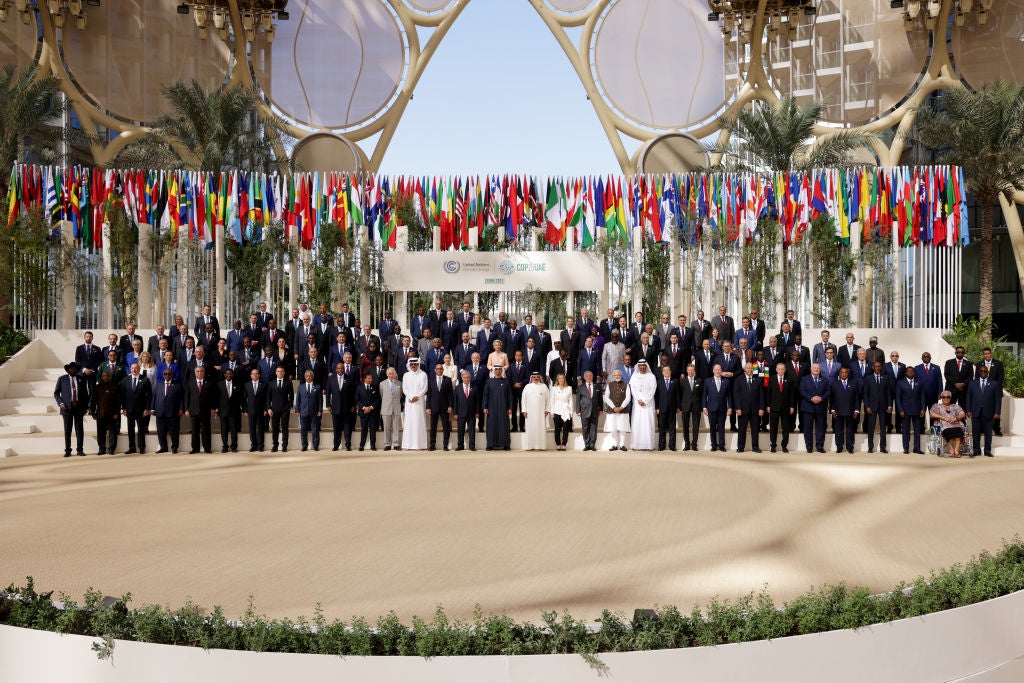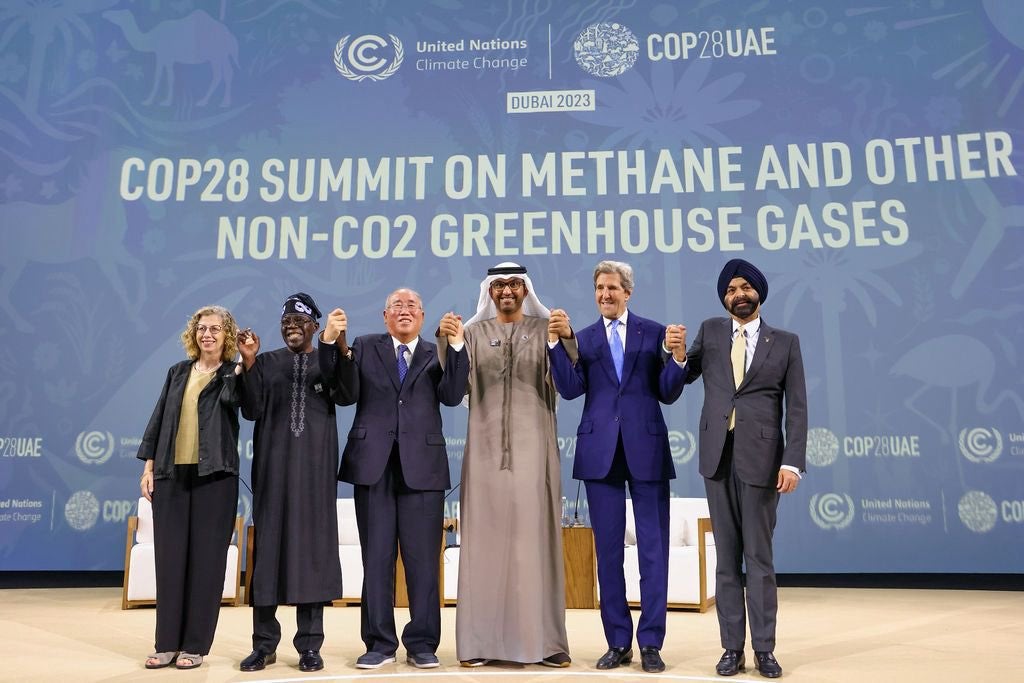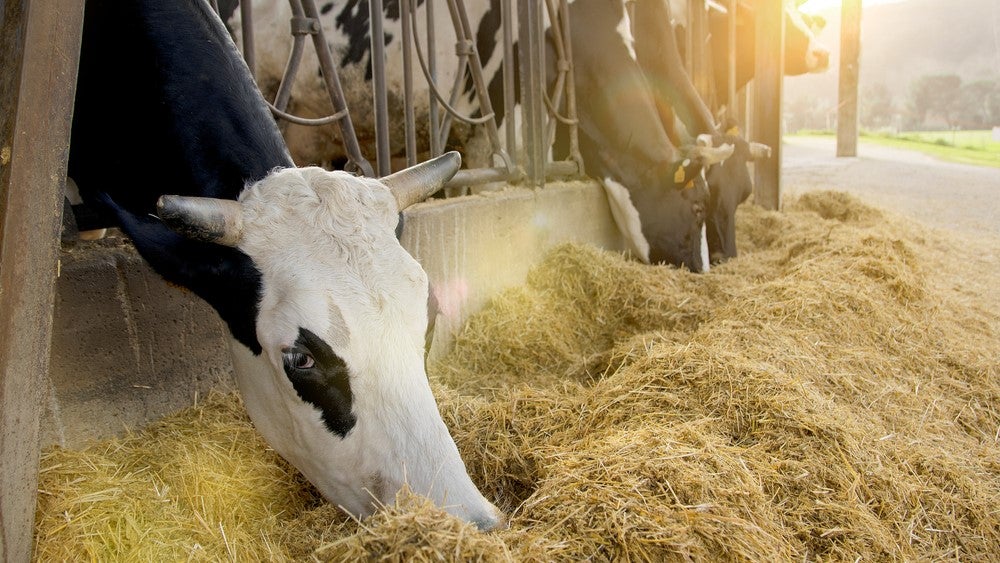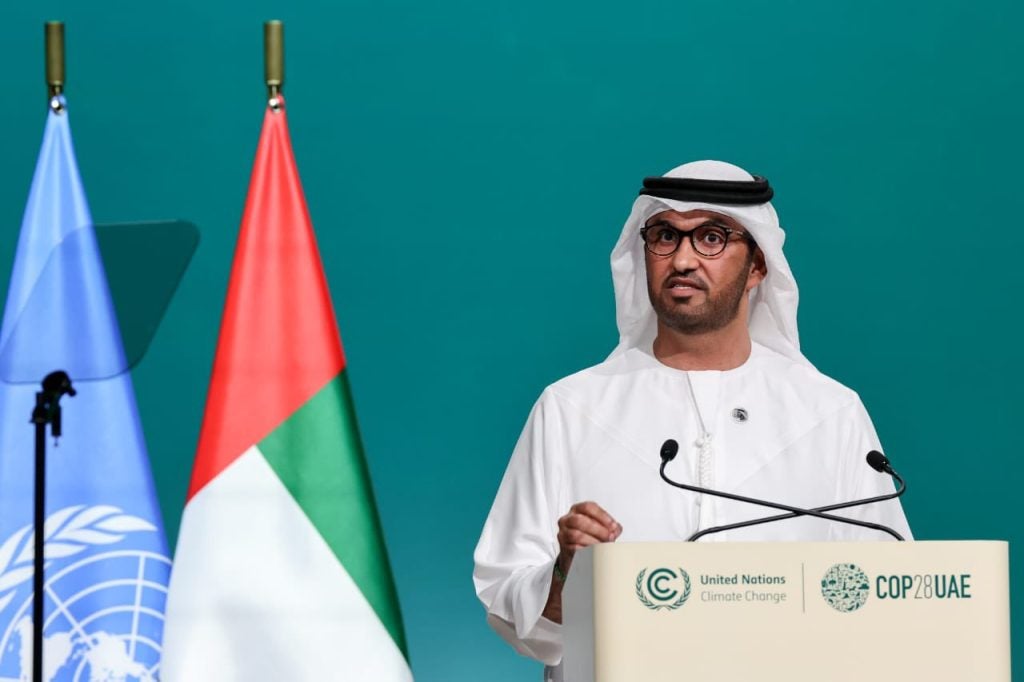COP28 negotiators have released the first draft of their response to the Global Stocktake synthesis report, showing the world is not on track to its climate targets, and there was cautious optimism on the ground in Dubai as language on a "fossil fuels phase-out" was included.
The Global Stocktake is the main accountability mechanism built into the 2015 Paris Agreement. COP28 is set to see countries offer a response to the Global Stocktake synthesis report, published earlier this year, which showed that the world remains well off track its target to limit global warming to well below 2°C and ideally 1.5°C.
The draft text, published on Friday, included language calling for a “phasedown/out" of both “fossil fuels” and “coal”, with negotiators set to choose which words they ultimately decide on in the coming days.
That choice is set to be a complicated one: While a group of more than 100 countries including the UK, Germany, Japan and Chile are calling on countries to agree to a phaseout of fossil fuels, other countries – including host United Arab Emirates (UAE) – are much more reticent.
Sultan Al Jaber, the president of COP28 and chief of UAE national oil company ADNOC, asked delegates in Dubai to "adopt a different mindset" in his opening address.
"It is essential that no issue is left off the table... we must look for ways and ensure the inclusion of the role of fossil fuels," Jaber said.
Nevertheless, external commentators were cautiously optimistic that language on fossil fuels had been included in a draft at all.
“All the ingredients are there, just have to mix them together in a coherent string of words now,” said Sonia Dunlop, CEO of the Global Solar Council, on X.
“Those that were watching #COP27 will remember [the] presidency diligently failed to put fossil fuel phaseout/down on any of the draft texts for the cover decision, despite calls from many parties,” added Simon Evans, from the climate publication Carbon Brief.
Shirley Matheson, WWF global NDC enhancement coordinator, added: “The Global Stocktake at COP28 must trigger the climate action needed limit global warming to 1.5C.
“With this draft, the UN Secretariat have given countries something to work with, but there is a long way to go before we can be sure of a transformative outcome.
“Options are on the table, including both weak and ambitious text on fossil fuels. Countries must now be bold and agree to the options that will give us the best chance of securing a liveable planet, such as measures to end the age of fossil fuels.”
Meanwhile, on the same day that the draft text was released, the leaders of more than 100 countries descended on the Expo 2020 Centre in Dubai to add impetus to the ongoing climate talks.
William Ruto, the president of Kenya, fresh from hosting the first Africa Climate Summit in September, said that his region was facing climate disaster.
“In eastern Africa, catastrophic flooding has followed the most severe drought the region has seen in over 40 years,” he said.
“A tendency to ignore Africa’s developmental and industrial needs … is no longer a tenable position,” he added. “Turning Africa into a green powerhouse is not just essential for the continent, it is also vital for global industrialisation, decarbonisation.”
The President of Brazil, Luiz Inácio Lula da Silva, called for other countries to follow Brazil’s example.
“We have adjusted our climate goals, which are now more ambitious than those of many developed countries. We have drastically reduced deforestation in the Amazon and will bring it to zero by 2030,” he said.
“The planet is fed up with unfulfilled climate agreements. Governments cannot escape their responsibilities. No country will solve its problems alone. We are all obliged to act together beyond our borders,” he added.
Notable absentees from the world leader’s forum included the world’s biggest emitters, China and the US.















